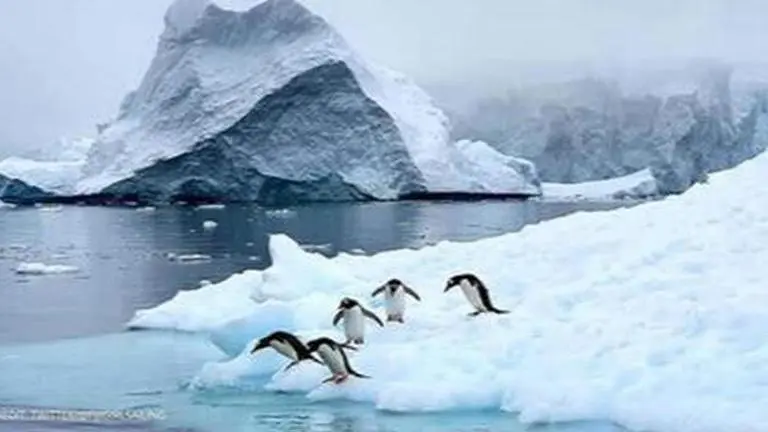Updated 29 May 2020 at 18:56 IST
Antarctic ice sheets melted 50 times faster than the present speed during end of ice age
A new study has found that Antarctic ice is capable of melting at a much quicker rate than what was previously thought possible if climate change continues
- Science News
- 2 min read

Antarctic ice is capable of melting at a much quicker rate than what was previously thought possible. According to reports, a team of researchers have discovered that during the end of the last ice age the ice sheets in the Antarctic were melting at a speed of 50 meters a day, which is roughly 50 times faster than the speed at which the sheets are melting today.
Could drastically raise sea levels
As per reports, scientists from the Scott Polar Research Institute at the University of Cambridge have been studying wave-like rock formation on the Antarctic seafloor and have come to the conclusion that approximately 12,000 years ago the ice retreated at speed of possible 10 kilometres a year. This rate is several times faster than the rates we are seeing in ice sheets today.
According to reports, researchers part of the study believe that if climate change continues at the rate is presently at and nothing is done to reverse the effect then we also might begin to see such speeds in the ice sheets and this could drastically affect sea levels.
Advertisement
Melting rates have increased
A team of researchers from the Ice Sheet Mass Balance Intercomparison Exercise (IMBIE) has reportedly revealed that the ice sheets in Greenland and Antarctica are losing ice six times faster than they were back in the 1990s. As per reports, these findings are based on observations from 11 different satellites missions monitoring the Greenland and Antarctic ice sheets.
Advertisement
According to the report, if the ice in Greenland and Antarctic continues to melt at the same rate then the ‘worst case’ scenario presented by the Intergovernmental Panel on Climate Change (IPCC) may come to fruition. They have predicted that sea levels will rise by 6.7 inches (17 centimetres) by 2100. The study was published in the Journal Nature. The Ice Sheet Mass Balance Intercomparison Exercise team looked at 26 surveys in order to determine the ice melting pattern of Greenland and Antarctic ice sheets between 1992 and 2018.
Published By : Shubham Bose
Published On: 29 May 2020 at 18:56 IST
